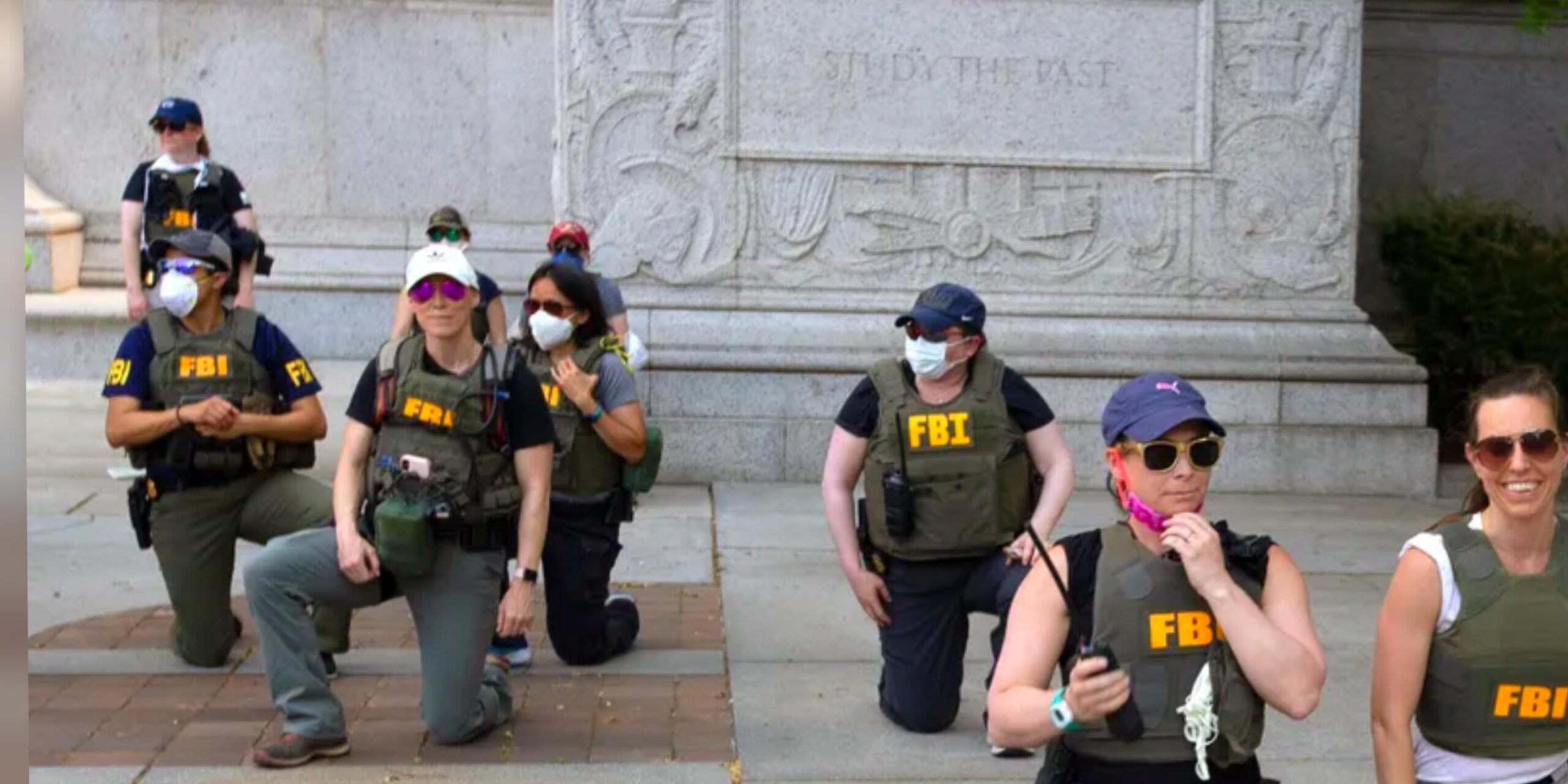
FBI Fires Agents Over Kneeling Gesture During George Floyd Protests
Dismissals of more than a dozen bureau personnel spark legal battles, politicization claims, and debate over law enforcement’s response to racial justice demonstrations
WASHINGTON – SEPTEMBER 27, 2025
The Federal Bureau of Investigation has dismissed more than a dozen agents who were photographed kneeling during racial justice protests in Washington, D.C., in 2020 following the killing of George Floyd.
While some reports place the number of terminated agents at around 20, the exact figure remains unclear. The move has triggered significant controversy within and outside the bureau, raising questions about politicization, due process, and the interpretation of symbolic gestures within law enforcement.
Government authorities, however, have defended the terminations, saying they are based on performance and policy standards.
In response to the backlash, FBI leadership has emphasized that the dismissals were not acts of political punishment but grounded in concerns about performance and maintaining institutional standards. Director Kash Patel has denied that the firings were driven by orders from the White House or the Department of Justice, rejecting claims that the terminations were retributive. According to multiple reports, including from FBI leadership during congressional oversight discussions, the agents dismissed were found to have “failed to meet the bureau’s standards.”
The firings come after a period of reassignment earlier this year, when the agents in question were quietly moved from their posts. According to accounts from those involved, the kneeling was not intended as an act of political support for Black Lives Matter or similar movements but was used as a de-escalation tactic at the height of protests, when tensions between demonstrators and law enforcement were particularly high. An initial internal review reportedly found no violation of bureau policy. The reversal of that conclusion under current leadership has sparked accusations of political motivation.
FBI Director Kash Patel, who assumed the role earlier in 2025, is overseeing a broad reshaping of the bureau. Critics have described the dismissals as part of a “purge” aimed at agents perceived as not fully aligned with Patel’s priorities.
The FBI Agents Association, which represents many bureau employees, has condemned the firings as unlawful and warned that dismissing career professionals and veterans with statutory protections undermines both morale and legal standards. Several former senior officials, including Brian Driscoll, Steve Jensen, and Spencer Evans, have joined lawsuits challenging the dismissals and accusing the bureau of trampling due process rights.
The controversy has reignited debate over the meaning of kneeling during protests. For some, it is a gesture of solidarity with calls for racial justice; for others, particularly in policing contexts, it is seen as an inappropriate political statement. Within the FBI, defenders of the kneeling agents insist that the act was carried out in the interest of calming a volatile crowd, not advancing a political agenda. The firings, they argue, send a dangerous signal that officers may be punished for exercising judgment in complex situations.
The decision has serious implications for the FBI’s internal culture. Agents and their advocates warn that trust in leadership has been shaken and that a chilling effect may discourage officers from using nonviolent gestures in future crises. The dismissals also risk deepening public skepticism of federal law enforcement, especially among communities already critical of the government’s responses to racial injustice. For critics, the move reinforces perceptions of politicization at a time when the bureau’s credibility is under intense scrutiny.
Legal challenges to the firings are already underway, with plaintiffs asserting that the terminations violated civil service protections and employment law. Veterans among those dismissed argue that their additional statutory safeguards were ignored. The outcome of these cases could set important precedents for how federal agencies discipline employees and interpret conduct during moments of national crisis.
The kneeling incident and its aftermath highlight broader unresolved questions: whether symbolic gestures by law enforcement can ever be separated from political meaning, to what extent leadership decisions are influenced by external political pressures, and how far the bureau can go in restructuring its workforce without eroding trust or violating the rights of its own employees. For now, the dismissals remain a flashpoint in the ongoing struggle to balance institutional authority, political neutrality, and the human realities of law enforcement under public pressure.